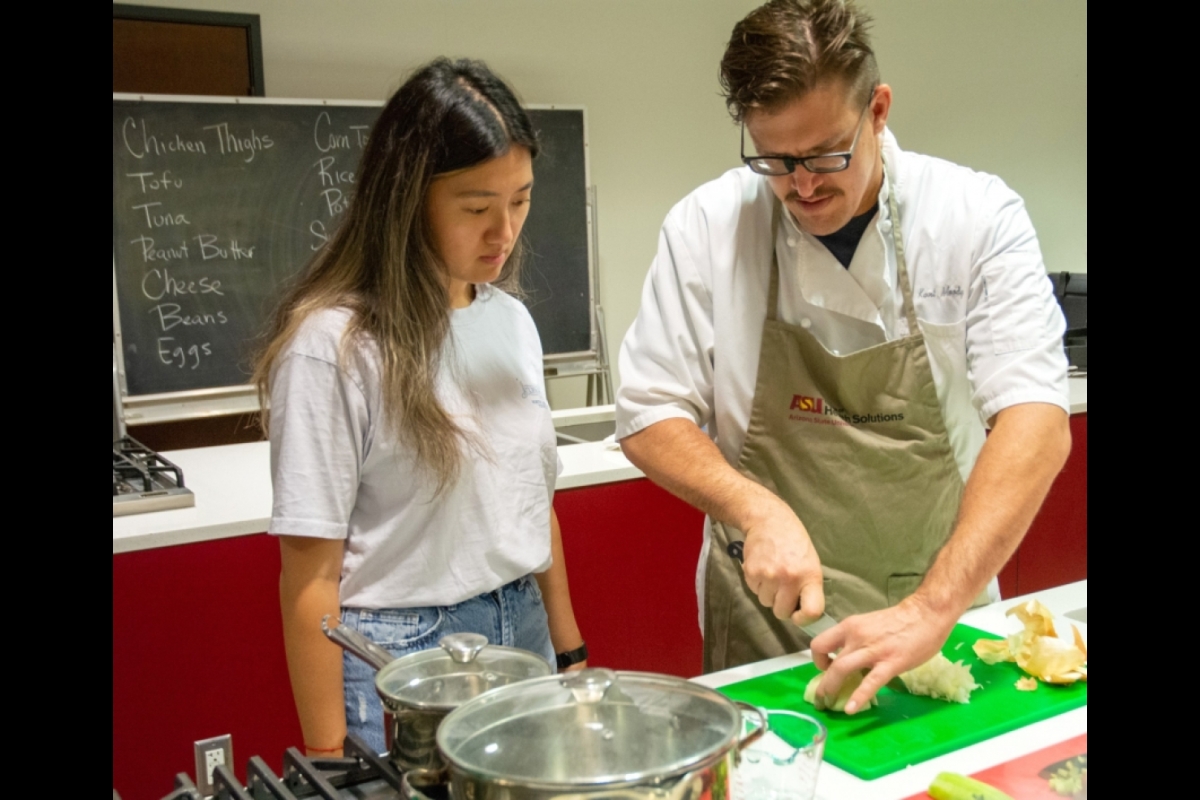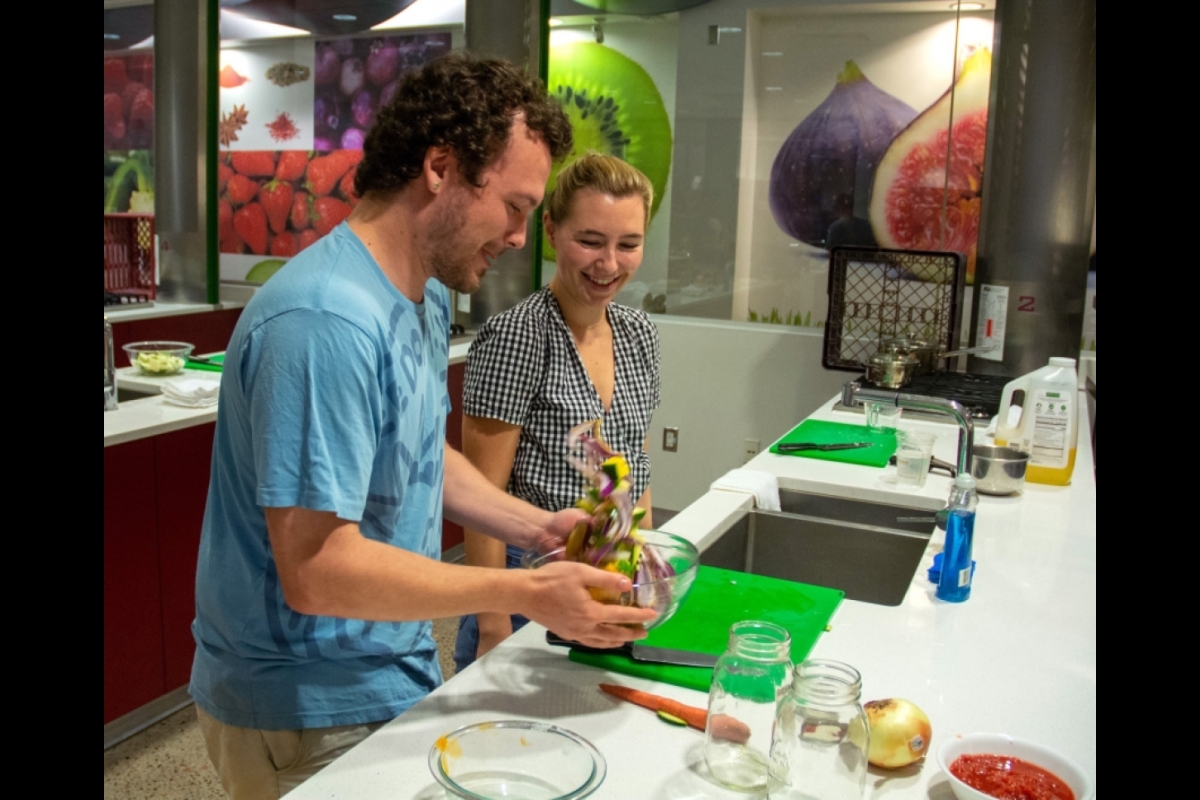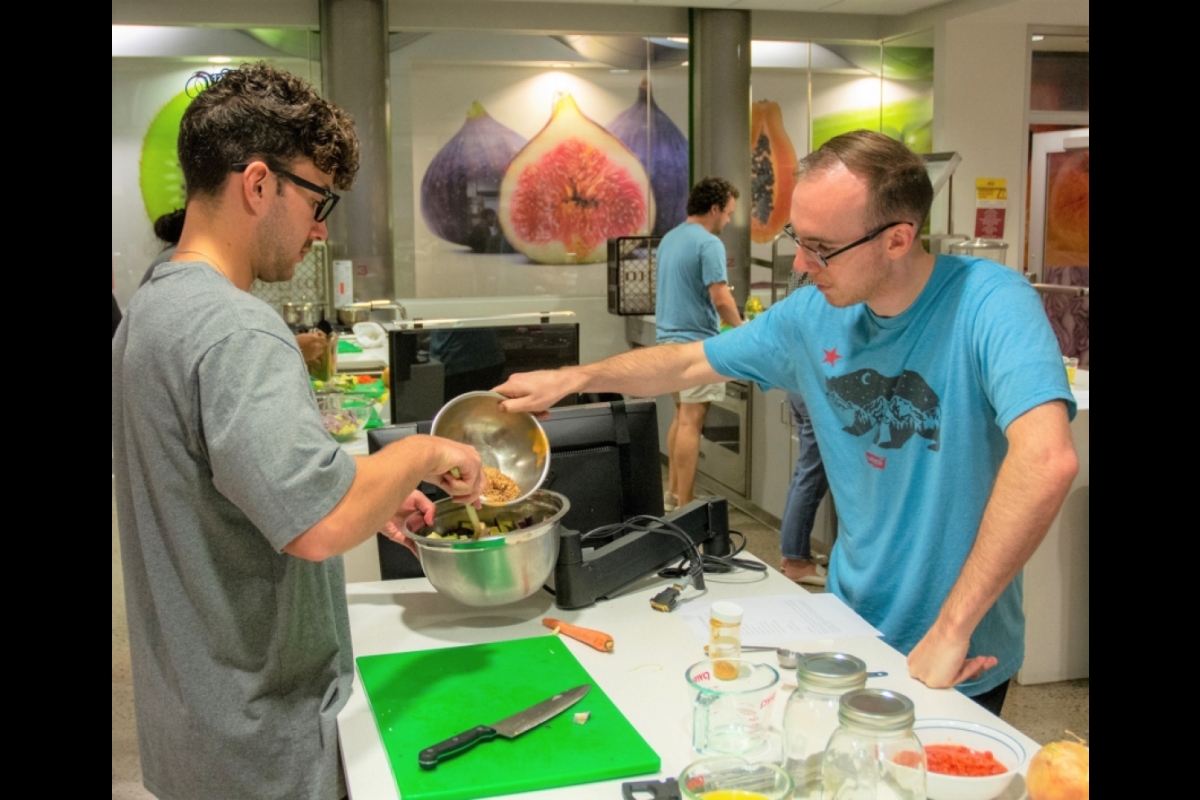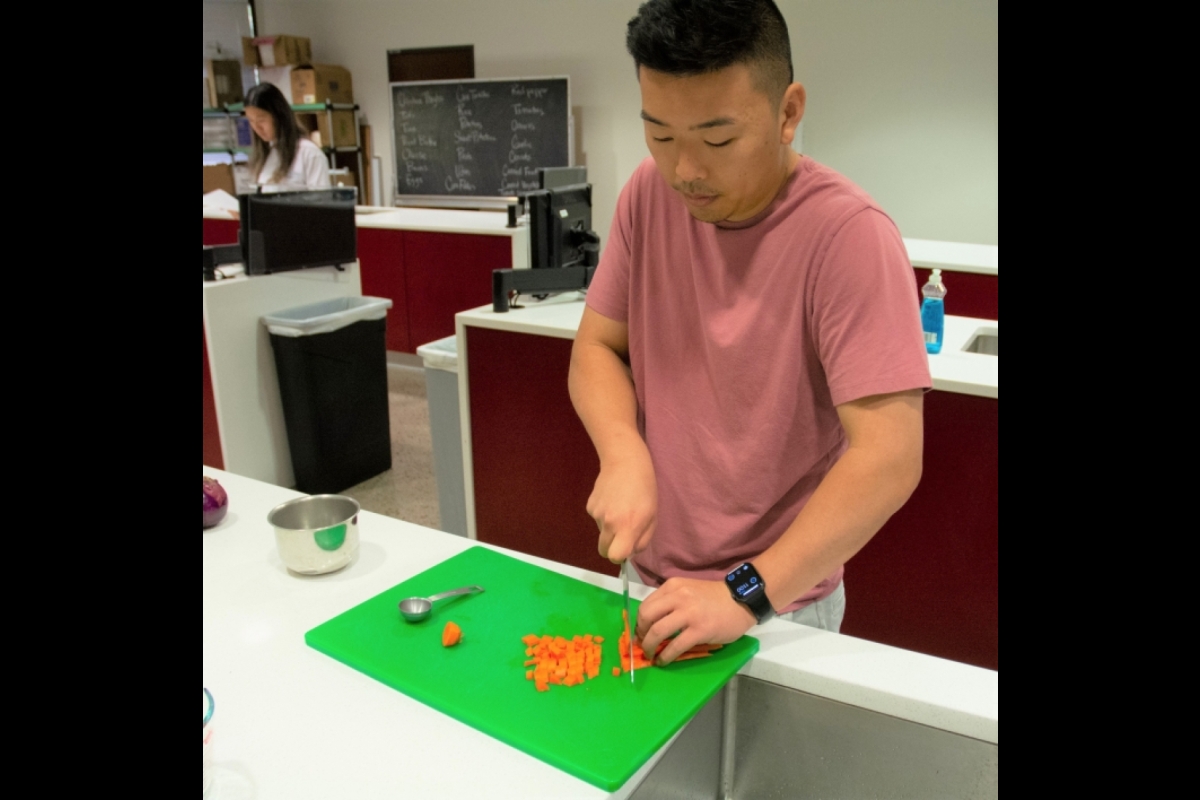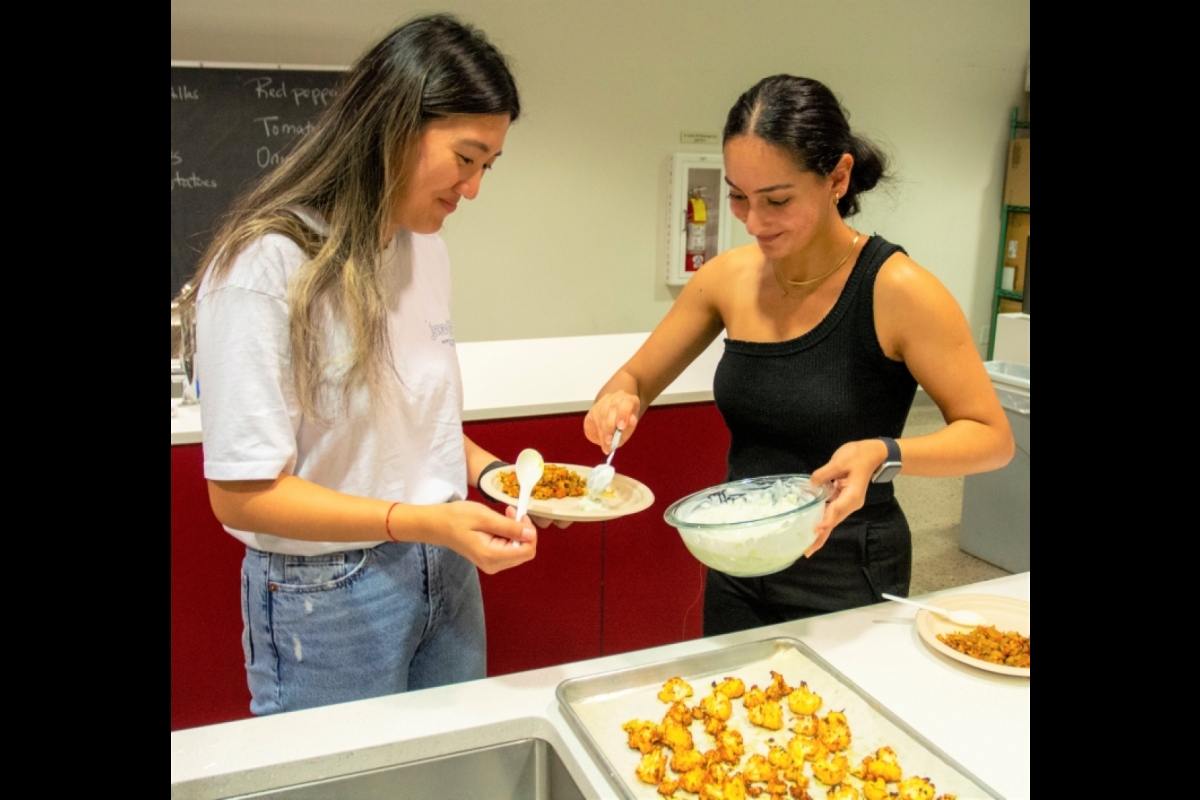Mayo Clinic medical students learn about food as medicine from College of Health Solutions experts
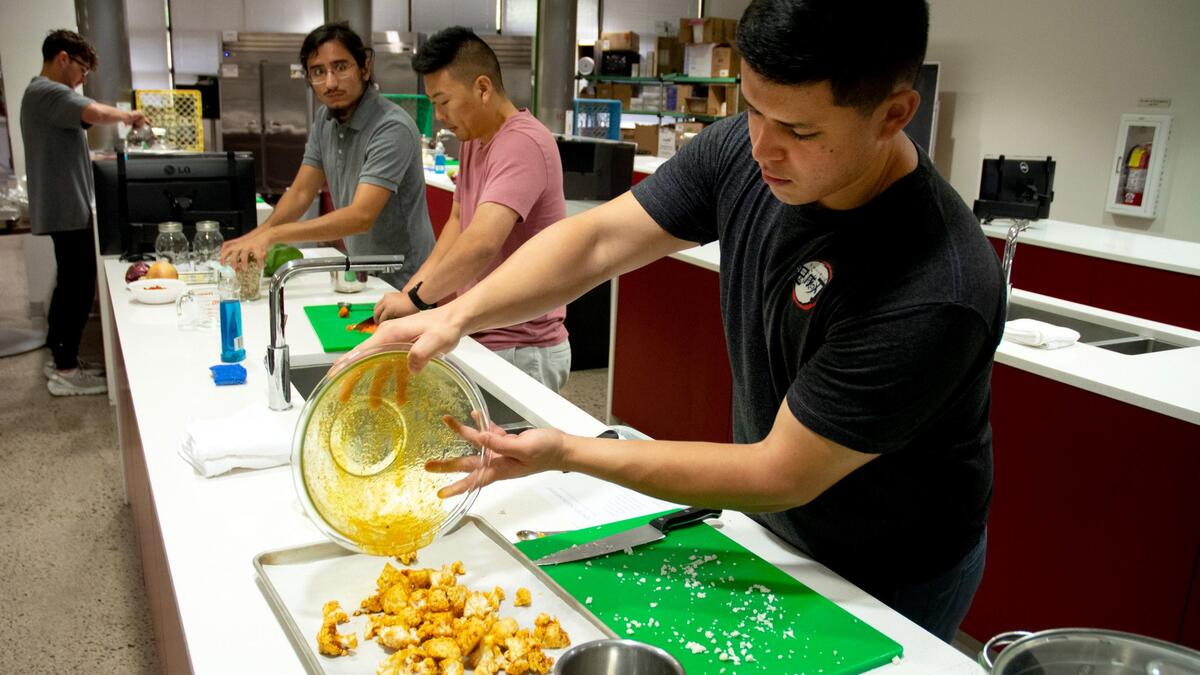
Editor’s note: This story is featured in the 2022 year in review.
A group of second-year Mayo Clinic Alix School of Medicine students felt like they were on the set of a cooking competition TV show on a recent August morning.
In reality, the nine students were in the kitchen at the College of Health Solutions on the Downtown Phoenix campus of Arizona State University. And while they spent five days in that kitchen chopping vegetables, sautéing meats and sampling exotic spices, they weren’t competing for cash, prizes or a spot on some Food Network show.
They were learning valuable nutrition and cooking skills that they hope to be able to pass on to patients when they’re practicing medicine.
In addition to spending time in the instructional kitchen under the direction of Health Solutions chef and kitchen coordinator Kent Moody, they attended lectures on nutrition presented by faculty from both ASU and Mayo Clinic. College of Health Solutions faculty taught on food as therapy (Professor Carol Johnston), the gut microbiome (Associate Professor Corrie Whisner), anti-inflammatory diets (Professor Dorothy Sears) and the pitfalls of processed foods (Clinical Professor Christy Alexon). Mayo Clinic faculty member Dr. Heather Fields (internal medicine) taught a session on plant-based diets.
“It’s a different perspective than we normally hear,” student Connor Lentz said. “We don’t have nutritionists come speak to us. They bring a different set of knowledge, different experiences.”
“A lot of medical professionals don’t understand nutrition all that well. We don’t get much of it in the classroom.”
The idea of providing future physicians with that perspective is what was behind this selective course when it was introduced in 2019. A selective is a one- to two-week block of time that enables the Mayo Clinic medical students to steer their education toward their specific interests. Johnston, professor of nutrition and an associate dean for faculty success at the College of Health Solutions, explained the selective came about through a Flinn Foundation grant.
Johnston said the grant included the charge of developing programs for medical students and doctors. Among the results are a one-year master’s degree program in medical nutrition (offered exclusively online) for health care professionals or students who plan to pursue a career in a medical profession.
“The master’s degree is not so much the science of nutrition — although everything is based on scientific evidence — but how you can apply it and provide nutrition information to patients,” Johnston said.
A graduate certificate in medical nutrition is in the development stage as well, with the goal of having it up and running in fall 2024.
The “Food as Medicine” selective is another component of that grant. It’s a short version of some of the things the students would learn in the longer medical nutrition degree program.
“Medical doctors, through the Flinn Foundation, said they wanted to support this because they didn’t know much about nutrition, and when patients would ask about it, they didn’t know how to answer,” Johnston said.
This course gives future doctors some new knowledge and practical tools in nutrition.
Mira Shoukry, another of the medical students taking part in the program, said that kind of nutritional background was exactly what she was looking for.
“A lot of times for patients with chronic diseases, we might say something like, 'You need to eat a high-fiber diet,' or 'Cut carbs,' but we really don’t know how to explain in reasonable terms how to do that,” Shoukry said. “This selective helps us do that.”
Jess Qu, who was paired up with Shoukry to make an Indian-inspired meal that included roasted curried cauliflower, vegetable khichdi and pickled mangos, said she had been looking forward to this selective since she heard about it while interviewing for medical school.
Qu plans to focus on lifestyle medicine, and learning how to recommend healthy foods would be beneficial.
“(Lifestyle medicine) is a lot about using food to prevent and manage chronic diseases,” Qu said. “I think it’s important for future providers to learn how to cook and be able to explain things to our patients as well. It’s especially important to be able to explain things in ways that are actually reasonable to incorporate into their lifestyles.”
The week in the kitchen was also enjoyable, Qu said.
“I think it’s cool for us to learn different recipes and expand our arsenal of what we can cook,” she said. “I feel like I’m on a cooking competition show.”
Shoukry added that beyond the potential benefit for future patients of the week’s worth of lectures and demonstrations, there was a more immediate bonus: learning to cook healthy and tasty meals for themselves.
“At the end of the day, we’re also students with poor diets,” Shoukry said.
Top photo: Mayo Clinic Alix School of Medicine students (from right) Ramiro Lopez, James Kim, Demian Herrera and Jaxson Jeffery learned about nutrition during the "Food as Medicine" selective at ASU's College of Health Solutions. Photo by Weldon B. Johnson/ASU
More Health and medicine
Is ‘U-shaped happiness’ universal?
A theory that’s been around for more than a decade describes a person’s subjective well-being — or “happiness” — as having a U-shape throughout the course of one’s life. If plotted on a graph, the…
College of Health Solutions medical nutrition student aims to give back to her Navajo community
As Miss Navajo Nation, Amy N. Begaye worked to improve lives in her community by raising awareness about STEM education and health and wellness.After her one-year term ended last month, Begaye’s…
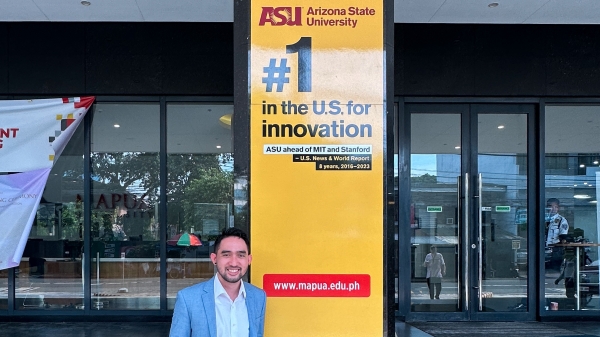
Linguistics work could improve doctor-patient communications in Philippines, beyond
When Peter Torres traveled to Mapúa University in the Philippines over the summer, he was shocked to see a billboard promoting Arizona State University.“It wasn’t even near the university,” said…
